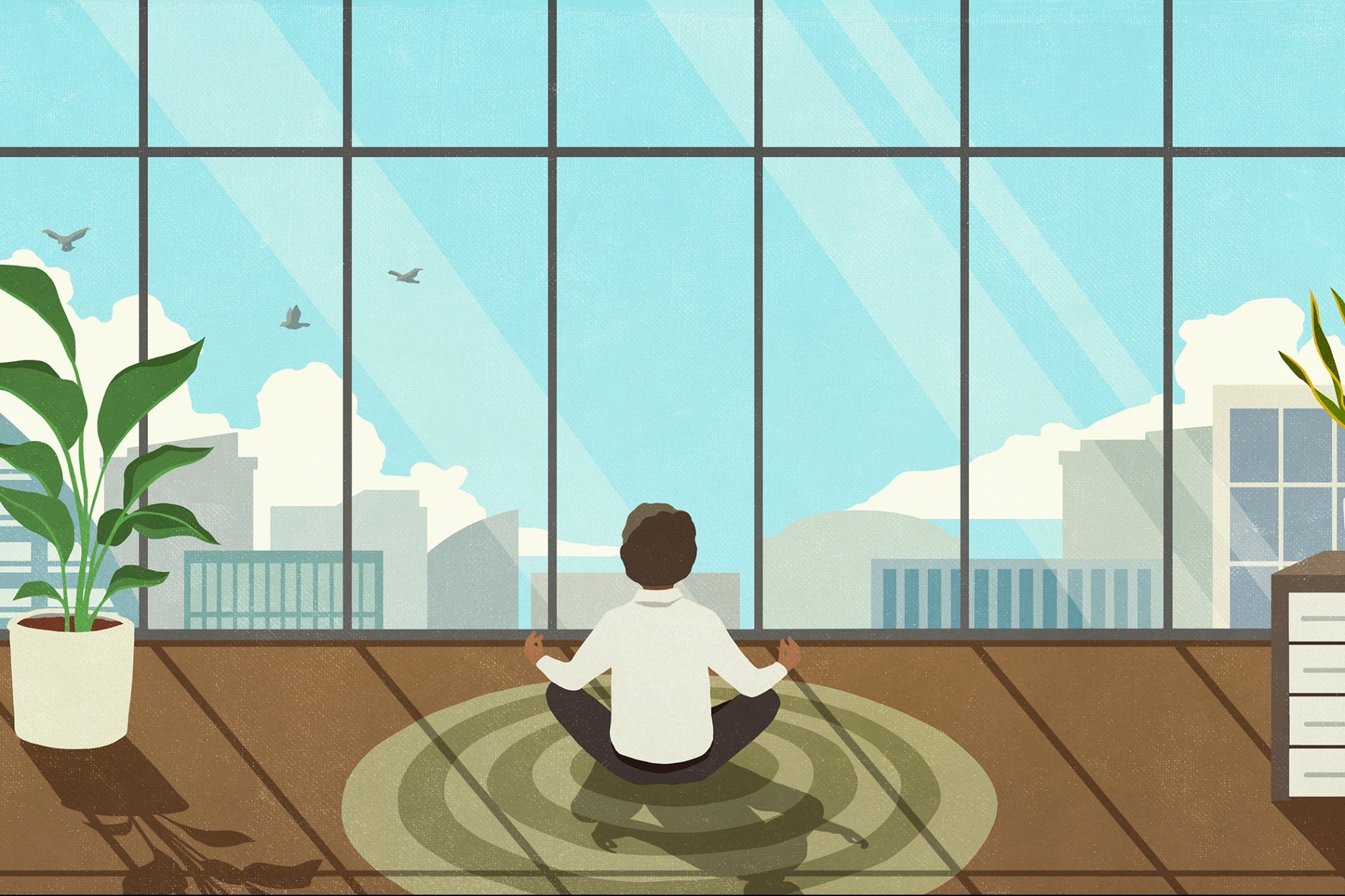Use These 4 Self-Care Rituals for More Resilience and Less DepletionBurnout is very real, however, it can be avoided through simple self-care rituals.
ByAdam Markel•
Opinions expressed by Entrepreneur contributors are their own.

Emotional outbursts are a sign of exhaustion and even burnout ... Take time to replenish yourself before you hit a wall.
Being resilientallows people to respond to unexpected challenges thoughtfully, with calm, grace and poise. But when we are depleted — physically, emotionally, mentally, or spiritually — we are more likely to react or even lash out when things go wrong. The challenges don't necessarily need to be life-altering to spur a reaction when depletion is our reality. Something as simple as a comment, traffic or ruined plans can quickly seem catastrophic.
We saw an example of this level of serious depletion earlier this year at the Academy Awards when actor Will Smith lost his cool, storming on stage to slap comedian Chris Rock after Rock made a joke about Smith's wife.
Smith's wife, Jada, was resilient enough to deal with it in the moment with little more than a pained expression on her face. Rock demonstrated resilience by not getting angry, choosing instead to express his surprise and move to another joke. But Smith'slack of resiliencewas clear from his reactivity. And more often than not, reactivity is the result of depletion.
Related:7 Ways to Stay Resilient in Uncertain Times
When depletion leads to bad behavior
Burnoutis very real, however, it can be avoided through simple self-care rituals. We are all human, and we need to replenish our resilience so that we can best face whatever struggles come our way. However, many of us do not pay attention to our level of resilience until we are already running on empty.
About49% of American employeessay they are burned out from their jobs, a new survey by Eagle Hill Consulting, LLC finds. The rates are higher for women (54%) and younger workers ages 18-34 (53%), says the report, which blames staffing shortages and heavy workloads as causes.
Depletion is a root cause of burnout. When you are depleted, you are less able to deal with adversity, uncertainty and unexpected challenges. You are in a lowered state of readiness. Unfortunately, often we don't notice we are depleted until something happens to test us.
The signs of depletion are all around us. Road rage, online rage and general incivility are all indicators that people are tense, reactive and triggered — like Will Smith at the Academy Awards. We didn't wake up one day having lost ourability to be patient, civil and compassionate. We're the same people we were before we got stressed out; we're just less patient, less thoughtful, less considerate and less able to manage our emotions.
So, what's the answer? Do we all need to take civility classes? Maybe, but it's really not about that. It's about the fact that people are exhausted. In that state, you're more likely to be short with your kids, your spouse, your coworkers — and certainly with strangers.
Our human tendency is todeal with uncertaintyor adversity from a place of fear. When our primitive fight-or-flight response is activated, our ability to think critically is diminished, overrun by defensiveness and even anger. We're far less concerned that we might offend somebody with our words, actions or tone of voice. This is where smart people can make bad decisions.
We've always been tribal, so why does it seem we suddenly can't be civil to one other anymore? I don't think people have forgotten how to be civil. I do think many people are feeling depleted. A key indicator of burnout is overwhelming fatigue that threatens to overrun the body, the mind, the heart and the spirit.
It takes energy to be patient. It takes energy to be empathetic, compassionate and understanding. To have the energy we need to be at our best, we have tobolster our resilienceand restore our energy before we need it.
Related:3 Rituals to Help You Build Resilience and Beat Stress
4 rituals for more resilience and less depletion
In order to successfully bolster our resilience and restore our energy before we need it, we can establish rituals for renewing and replenishing ourselves in all four resilience zones: physical, mental, emotional and spiritual. These are the daily habits we engage in to replenish ourselves.
Movement is healing.Simple acts, such as stretching and exercising can do a lot for all four resilience zones. They're also a great way to interrupt a spiral or negative emotions that might lead to bad behavior.
Fresh air is revitalizing.Getting outside, taking a quick walk or engaging in an activity you enjoy outside stimulates those feel-good chemicals in your brain that we need to battle depletion. Daily doses of fresh air, outside of the cubicle or office walls, create space for a mental break as well — pulling double duty for your resilience.
Silence really is golden.Meditating and taking short but meaningful breaks throughout our workday interrupts the noise and constant information overload we are all subjected to on a daily basis. Rather than wait for overwhelm totake a break, schedule these moments intentionally throughout your day. If it's on your calendar, you're much more likely to follow through, which is half the battle when it comes to self-care.
It's important to feed your brain.We don't give enough credit to how new perspectives and growth can create a calming effect across our lives. When we read, invest time in learning or spend focused time onpersonal growth, it also creates more space in our lives to deal with difficult situations in more effective ways.
With practice, we can change how we react to stressful, unexpected situations. By creating andpracticing rituals恢复你一整天,你不莱克阀门ely to be depleted and better equipped to be patient, kind and compassionate — and, of course, to make better decisions.
Related:Want to Prevent Burnout? Start Building Resilience Now.











